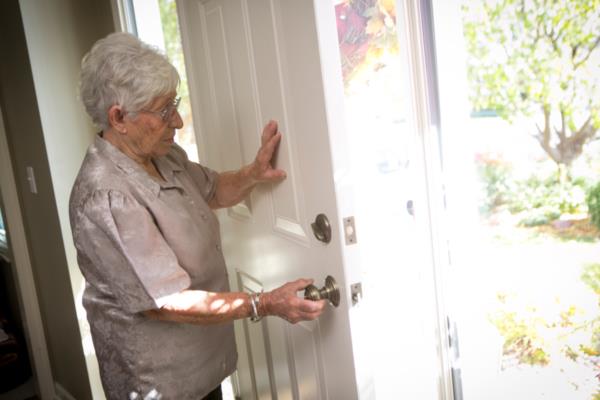Ineffective communication can eventually impact quality of care for an individual with dementia, noted University of Arizona Communication Professor Jake Harwood who served as an expert source for the Home Instead® 40-70 Rule program.
Tips for Talking to Someone Living with Alzheimer's or Another Form of Dementia
Simplify Talk. Simplified speech can often be beneficial to people with dementia. In particular, keeping sentence structures simple is helpful. Multi-clause sentences that branch in different directions are challenging for many older adults, and may be impossible to understand for those with severe cognitive impairments.
Avoid Patronizing Talk. “Baby talk” is a style of talk that includes super short sentences, childish vocabulary (“choo-choo” instead of “train”), pet names (“sweetie”) and baby-ish intonation. There is no evidence that use of such communication is effective. In addition to being perceived as disrespectful, a patronizing style actually reduces cooperativeness and can make administering care more difficult.
Take Time. Allowing pauses in conversation, being willing to repeat and elaborate, and waiting for a response all signal an openness to the conversational partner. These actions also allow the extra time the person with dementia might need to make connections and generate a response.
Allow Choice. Even simple choices (“Would you like X or Y?”) grant personhood and offer opportunities for control in a life that is often lacking such chances. Choices with too many options (“What do you want to do?”) may be overwhelming for some dementia patients.
Be Concrete. Abstract vocabulary, metaphors, colloquialisms and wordplay are unlikely to be successful. People with dementia respond to specific, concrete language, particularly language rich in concrete nouns and people’s actual names, rather than pet names or “he” or “she.”
Use the Environment. Objects in the environment, such as photographs, food, music, people, or any number of other things can provide stimulation for interaction. Using this approach and encouraging the person with dementia to do so as well can help maintain communication.
Talk to the Person. Above all, people with dementia deserve opportunities to have social interactions and experience conversational exchange. It is a basic responsibility for others to respond in an attempt to maintain interaction even when it appears to not be going anywhere. Conversations with people who have dementia are not “normal” conversations, and the goal shouldn’t be to correct incorrect statements or to get a “right” answer. Instead, focus on feelings rather than facts.
The opportunity for interaction of any sort is an opportunity to experience a fundamental human connection and is of value for people with dementia, Harwood said. “Negotiating a successful interaction not only enriches the patient’s life, it also makes our work as health care providers more interesting, rewarding, and satisfying.”
Person-Centered Dementia Care
Home Instead Care Professionals are trained using a one-of-a-kind protocol for Alzheimer’s and other dementias. Our person-centered approach honors your loved one and preserves their dignity.





